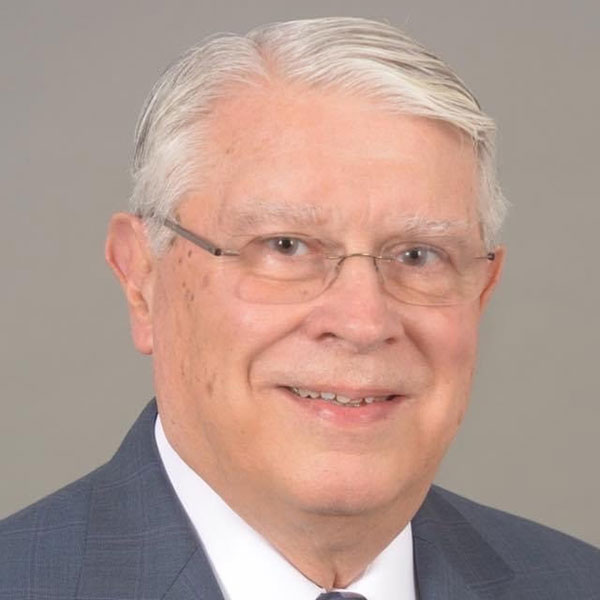Dr. Thomas P. Ference: A Legacy of Making the Impossible, Possible
In April 2022, our country’s academic, business and civic worlds mourned the passing of a man who dedicated his life to serving the greater good: Dr. Thomas P. Ference (CIT ’63, GSIA ’66, GSIA ’67). One year later, the Tepper School of Business celebrates his lifetime of service and would like to honor his and his family’s ongoing contributions to Carnegie Mellon University. Afterall, it was right here on our campus that Ference first pursued his love of academia and inspired a longstanding legacy of education and giving back.
Thomas P. Ference was born in Wilkinsburg, Pennsylvania in 1941. He considered himself a proud Pittsburgher even as his career flourished and eventually took him to the East Coast.
Ference attended Carnegie Mellon University, then known as Carnegie Institute of Technology, where he earned his B.S. in Mechanical Engineering in 1963, followed by an M.S. in Industrial Administration from GSIA (now known as the Tepper School of Business) in 1966. He then went on to earn his Ph.D. in Organizational Psychology under the tutelage of Nobel Prize winner Herbert Simon and internationally renowned behavioral scientist Richard Cyert, in 1967. In doing so, Ference became the youngest student ever to earn a Ph.D. at CMU, at the age of 25.
Ference’s academic career led him to join the faculty of Columbia University’s Graduate School of Business and the Mailman School of Public Health, where he taught for 51 years. He served as director of the Executive MBA program from 1974 – 1994 and was eventually bestowed with the title of professor emeritus. At Columbia, Ference was praised for pioneering curricula which bridged theory and practice around team and simulation-based learning. He was considered an innovator and enjoyed pushing the boundaries while educating students, coaching executives, and consulting with international leaders in the profit and not-for-profit sectors. Ference also co-authored a textbook, MBA Fundamentals Strategy, in which he sought to offer an easy-to-read, yet comprehensive approach to strategy for graduate students and organizational leaders. Upon his passing, a former student paid tribute to Dr. Ference for his profound influence and offered the ultimate compliment to an educator, “He dared us to make the impossible possible.”
Ference’s impact was global, national and locally impressive. During his career, he taught executive programs in Europe, Asia and South America. In 2019, the Mailman School of Public Health renamed its strategic decision-making system the “Thomas P. Ference Health System Simulation.” This leading edge simulation is currently used to train executives at prominent hospitals such as Memorial Sloan Kettering, Cedars-Sinai, and Rutgers New Jersey Medical School, as well as at other highly regarded institutions like the Disney Institute and KPMG. Dr. Ference also directed an executive development program for senior New York Police Department executives under auspices of the Institute for Not-For-Profit Management.
Continuing his passion for supporting the community, Ference served as mayor of his adopted hometown of 50 years, Haworth, New Jersey. There, he founded a soccer club and coached local baseball, soccer and softball teams and instilled a love of athletics that continues today via his son’s championing of CMU sports teams.
Indeed, the Ference family legacy of education thrived at Carnegie Mellon. His son, Thomas M. Ference, received a degree from GSIA in Industrial Management (GSIA ’89) before continuing his studies at Columbia (M.Ed., M.A.), Kent State (MPH), and the University of Kansas, where he earned his Ph.D. in Counseling Psychology. Dr. Ference currently practices in Ohio.
His other son, Michael Ference (H&SS ’91, GSIA ’92), was an Andrew Carnegie Scholar when he graduated with honors and a B.S. in Policy Management from Dietrich in 1991, before receiving his MBA in 1992. He attained his law degree at the Benjamin N. Cardozo School of Law in 1995 and is currently a partner at Sichenzia Ross Ference, LLP, in New York City, where he is a nationally recognized expert in securities litigation and arbitration. Like his father, Michael strives to give back to his alma mater, both in the form of support and inspiration. During the financial crisis, Michael was profiled in the Tepper alumni magazine, in which he encouraged Tepper students to keep the faith during a time of slow deal-making. He also offered words of wisdom about leadership. He said, “What earns respect isn’t your position, it’s the way you conduct yourself.” He added, “People will only follow you if they want to emulate you. Don’t tell them what to do, get in the trenches.” He shared that his colleagues and employees understand that while they may have different titles, they ultimately share a common goal. Growing up, Thomas and Michael’s father clearly taught and led by example.
Beyond the two sons, the Ference family’s educational pursuits left more imprints on CMU. Their mother, Ellie, graduated in 1964 from Margaret Morrison Carnegie College (MMCC). As well, their father’s contemporaries – uncle James Miller and cousin Karen Parkin – both received degrees from the Mellon College of Science in 1959 and 1969, respectively. Will grandchildren and great-grandchildren continue the Ference Tartan legacy? History will tell.
In the year since his passing, Dr. Ference’s life continues to serve as an inspiration to others. Tod Johnson (IM ‘66, GSIA ‘67), vice chair of the Carnegie Mellon University Board of Trustees, was one of Ference’s life-long best friends. Johnson reflected on his friend’s life and impact. “Tom was the epitome of a life well led and a life well served,” said Johnson. “He loved what he did and inspired those around him to emulate his example of giving back – to the community, his family, and with his life’s work. I take great pride in watching the Ference family uphold his legacy of an impeccable work ethic and commitment to serving the greater good.”
Dr. Ference’s life, accomplishments and influence shall serve as an enduring reminder that we can make anything – even the seemingly impossible – possible.

